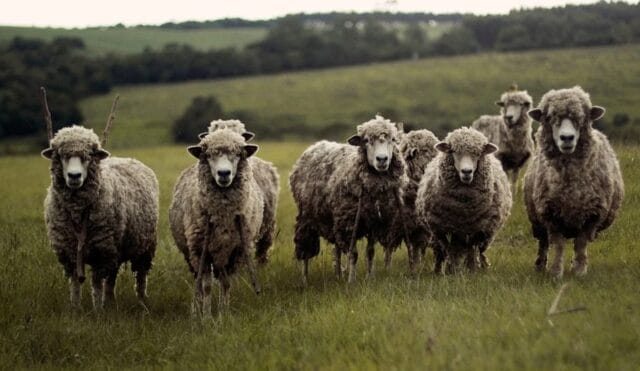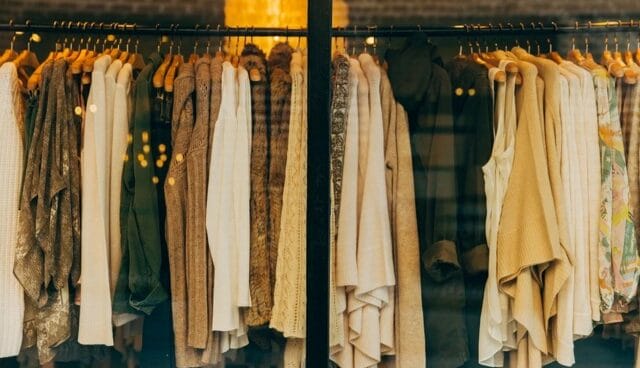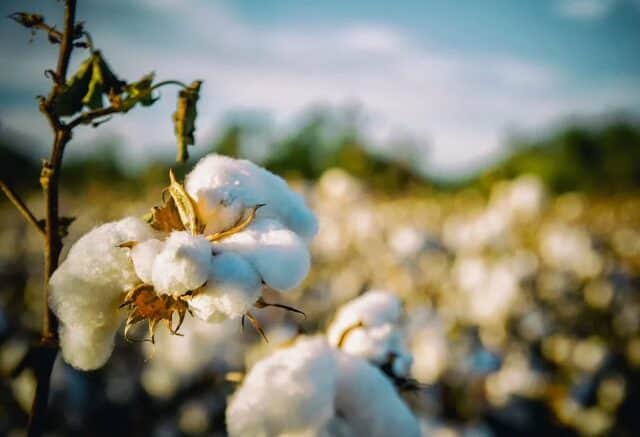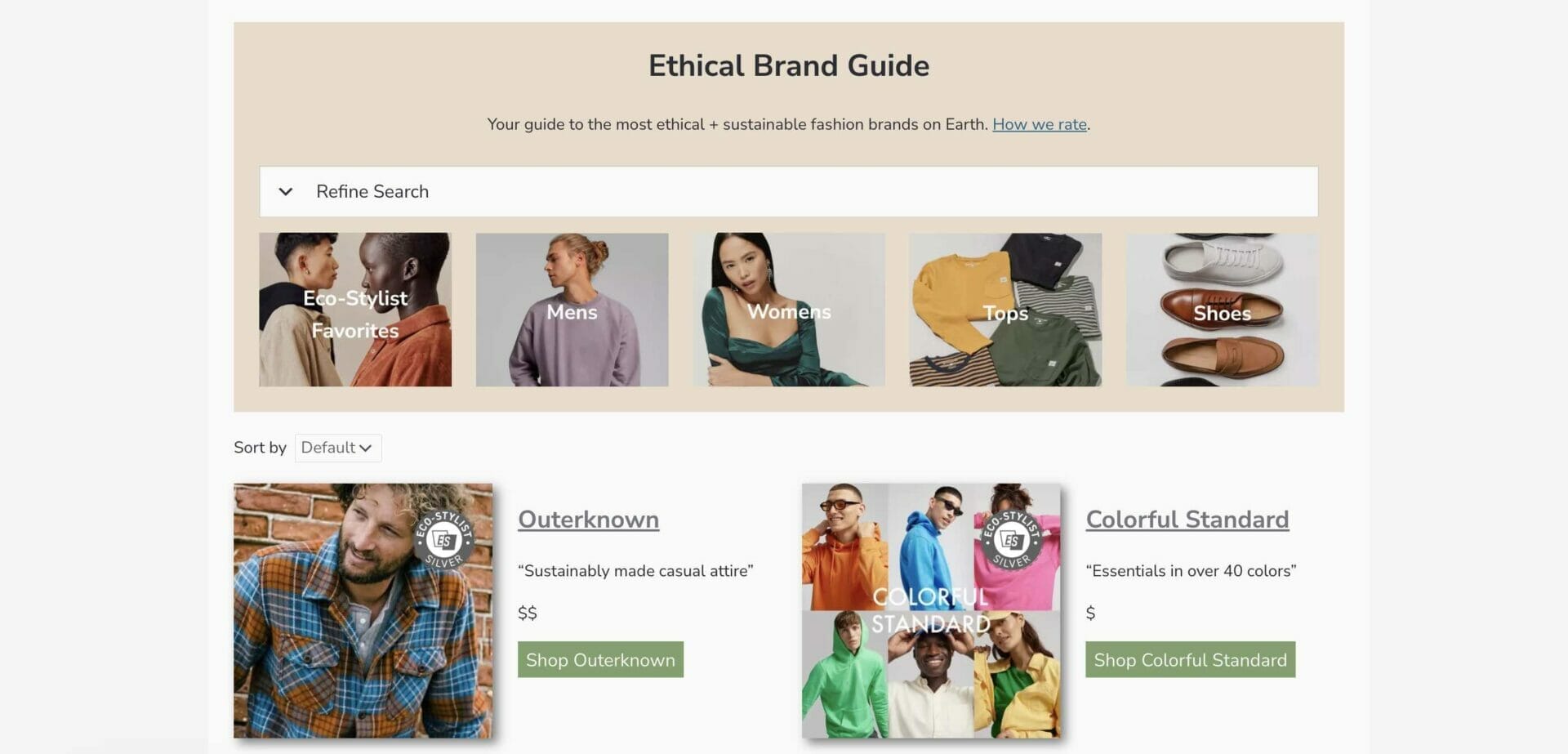In the last couple of years, interest in vegan fashion has increased considerably. Not only are there more vegan apparel and accessory brands coming out, but big-name brands are also starting to integrate vegan collections into their stores.
With 10% of adults in the US now identifying as vegan, it’s really no surprise that vegan fashion is growing. But seeing it happen and understanding why it’s happening are two different things.
What is Vegan Friendly Clothing?
Contrary to popular belief, becoming vegan doesn’t just mean making dietary changes. It also entails making changes all over your life. And yes, that includes the clothes you wear.
The premise of vegan fashion is simple: you have to commit to not wearing any animals or animal by-products. The ethos behind vegan fashion goes much deeper than just actions, but it is a good starting point of understanding the movement.
There are the obvious switches: not using fur, wool, cashmere, leather, silk, and any other textile derived from animals.
But what many might not consider is that going vegan also means not buying products with animal glues, no beeswax, and no animal dyes. These are often minor aspects that most of us don’t really pay attention to. Vegan fabrics and their sustainability are a complex topic that you can read about extensively.
So, just because a pair of shoes is made of cotton does not automatically mean that they are vegan. The manufacturer could have used animal glues as the main adhesive. In the same way, a cotton shirt is not always vegan either. It could have been processed using non-vegan dyes like cochineal.
Vegan fashion is best identified through certifications like those given by PETA or the vegan society.

Animal Welfare
At its very core, going vegan means believing in the welfare of animals and treating them respectfully. Considering that there are countless aspects of our lives that are reliant on animals and what they can provide us, this means making a lot of changes.
The animal farming industry is ripe with cruelty. From the way animals that will be used for food products are housed and slaughtered to the way animals are used for testing cosmetics, there are so many ways they are unjustly treated.
Going vegan and wearing vegan fashion means you aren’t complicit in these actions. It signifies that you cannot support the underlying themes of cruelty that keep animals suffering.
Strong support for animal welfare is a huge part of why vegan fashion has become so popular. People no longer want to don clothes that have the additional costs of animal lives tacked on to them.
It also helps that many major fashion houses have started removing certain animal products from their collections. The most notable of these is fur.

Sustainability
The next major reason why vegan fashion is all the rage lately is because of sustainability movements. The animal farming industry does not only harm the animals themselves, it is also environmentally damaging.
Animal agriculture contributes around 14% of all total global human-induced emissions—a percent that is similar to the global contribution of transport.
Therefore, by cutting animal products from your life, you can significantly reduce your carbon footprint.
And as people become more aware of the damage they are inflicting on the planet, it’s pretty clear why some people would want to go vegan to lessen their environmental footprint.
Going vegan and believing in sustainable, eco-friendly practices can go hand in hand. Understanding veganism involves the acknowledgment that doing what you can for the planet and animals also means living sustainably.
For that reason, many vegan fashion brands also create their pieces sustainably and with a mind for their environmental impact. However, that’s not always the case.
Watch Out for Greenwashing
Because vegan fashion is supposed to be inherently pro-environment, there’s a misconception that it always is. In reality, there are many parts of vegan fashion that are continuously greenwashed.
Greenwashing is a company practice of marketing products as eco-friendly when they aren’t really. In vegan fashion, we see this in how brands advertise collections as eco-friendly when they’re made of PVC and other plastics.
This is also true when brands market their eco-conscious collections made from cotton without acknowledging the major environmental issues with conventional cotton production.

The Layers of Vegan Fashion
At this point, many of you might think that vegan fashion is a black and white thing. As long as it’s not made from animals, then it’s vegan. Right?
To an extent, yes. That’s the core of what veganism is. But people go vegan for a variety of reasons. Some are in it for the positive environmental effects just as much as they believe in the proper treatment of animals.
Ideally, vegan fashion involves products that are animal-free, cruelty-free, sustainably made, and ethically produced.
There would be a major ethical conflict if a certain company markets its products as cruelty-free but their workers suffer under sweatshop conditions. It would also be conflicting if a brand markets their items as sustainable because they don’t use animals but use heavily toxic plastics like PVC instead.
Why Vegan Fashion is Becoming More Popular
Because it is the – true – ‘new green’: if chosen well, vegan clothes and accessories have a positive impact on animal and environmental welfare. Did you know that, from an environmental degradation perspective, three out of the four worst fabrics are animal derived?
We are now, more than ever, painfully aware of what our consumption practices do to the planet and to the people on it. We know more about supply chains and the injustices that might have occurred for a pair of sneakers to end up on retail shelves.
We now have accurate data on how the animal industry affects the planet and how we, in supporting it, are affecting it in turn. Vegan fashion is growing because, when faced with those facts, it’s difficult to just look away and keep on pretending these things aren’t happening.

22 Sustainable Vegan Fashion Brands
Many Eco-Stylist Certified brands offer some, most, or all vegan options. Here’s 22 vegan friendly fashion brands to check out:
- Pact (all)
- Thousand Fell (all)
- Warby Paker (all)
- Girlfriend Collective (all)
- Organic Basics (all)
- Subset (all)
- 8000Kicks (all)
- Dedicated (all)
- The Classic T-Shirt Company (all)
- Vustra (all)
- AlterX Co. (all)
- Conscious Step (all)
- Boldwill (all)
- GOEX (all)
- Etiko (all)
- The Good Tee (all)
- MUD Jeans (all)
- culthread (all)
- Toad&Co (some)
- Outerknown (some)
- Known Supply (most)
- Nudie Jeans (most)
For more vegan fashion brands just filter by “vegan” in our ethical brand directory!

Final Thoughts on What is Vegan Fashion?
Whether you follow a plant-based diet or not, opting for vegan fashion is another eco-conscious way you can vote with your wallet. Just like refusing single use plastics or changing your commuting habits, slow and cruelty free fashion is a way for all of us customers to cast a vote towards a safer, healthier planet for all its living creatures. Concretely, this means you do not buy from brands with questionable practices, whether from an environmental, human, or animal perspective.
If you can afford it, buy (and thus support!) local vegan brands that abide by a transparent, ethical code of conduct (buying second-hand is great too and a lot more affordable, as you may already know).
And finally, spread the word; educate yourself and others on this crucial topic – small streams become great rivers.
*Article last updated 10/06/23.

Catherine McCourt is a content writer at Eco-Stylist. She studies English, Creative Writing, and Philosophy at the University of Iowa. When she’s not writing about sustainability in fashion, Catherine enjoys painting, journaling, and much needed downtime.









